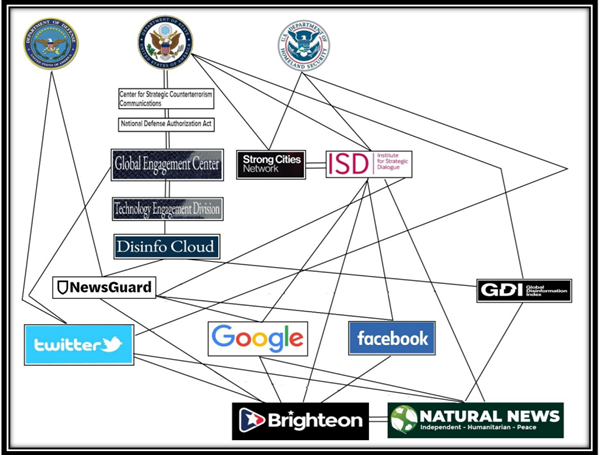Greek study shakes global health narratives: Nearly half of COVID deaths not linked to virus
04/24/2025 / By Willow Tohi

- A Greek study published in Scientific Reports found that nearly half (45.3%) of deaths classified as COVID-19-related in Athens hospitals in 2022 were actually due to other causes, with only 25.1% directly caused by SARS-CoV-2.
- Death certificates and hospital coding inaccuracies inflated COVID-19 mortality figures, with only 64.7% of “direct” COVID-19 deaths clinically validated. Vaccinated individuals made up 53.8% of deaths attributed to the virus.
- Similar death-reporting practices in other Western nations likely led to artificially high global death tolls, skewing public perception and policies.
- Hospitals and governments may have exaggerated COVID-19 deaths due to funding tied to case counts, while pharmaceutical companies and policymakers relied on fear to justify vaccines and restrictions.
- The study fuels skepticism toward public health institutions, with critics demanding transparency, revised death certification protocols and accountability for misleading pandemic narratives.
A groundbreaking study published in Scientific Reports this week has exposed critical flaws in global pandemic death reporting, revealing that nearly half of deaths classified as caused by COVID-19 in Athens hospitals in 2022 were not directly attributable to the virus. The research, led by a team of 19 Greek doctors and researchers, examined 530 deaths from seven hospitals between January and August 2022 — peak months of the omicron wave — and found only 25.1% (133 deaths) were directly caused by SARS-CoV-2. A further 29.6% (157 deaths) involved the virus as a contributing factor, bringing the total of deaths related to the virus to just over half (45.3%). The remaining 45.3%, or 240 deaths, were attributed to other causes, despite occurring in patients testing positive for COVID-19.
Misclassification, bias and the fallout of crisis medicine
The authors identified systemic issues undermining mortality data, including inaccurate death certificates and misclassifying hospital-acquired infections. Shockingly, only 64.7% of death certificates listing COVID-19 as the direct cause were validated during clinical review, while just 26.5% of deaths tagged as virus-linked as a contributing factor stood up to scrutiny. The study further noted vaccinated individuals made up 53.8% of those dying “from” the virus, with 65.8% of these vaccinated patients having received booster shots. Nicholas Hulscher, an epidemiologist endorsing the study’s methodology, emphasized its uniqueness: Unlike most death audits relying on administrative coding, this “comprehensive clinical audit” combined chart reviews, physician interviews and expert validation.
The miscounting, researchers argued, stemmed from Greece’s practice of labeling all deaths in patients testing positive as “COVID deaths” — a protocol mirrored in many nations. Hulscher warned this approach “artificially inflated” global mortality figures, skewing public perception and policy. “Similar coding practices were employed across Western nations,” he stated, suggesting the overcounting of deaths likely occurred worldwide.
A legacy of fear-based policies and financial incentives
Experts argue such missteps weren’t accidental. Dr. David Bell, a public health physician, traced the trend to financial pressures on hospitals incentivized by pandemic funding tied to higher case counts. “Governments provided subsidies, and pharmaceutical companies pushed mRNA vaccines,” he explained. “With omicron’s lower mortality, there was a push to exaggerate severity to justify fear-driven policies.”
The study’s findings also amplified concerns about pandemic-era medical practices. Karl Jablonowski of Children’s Health Defense noted the overreporting reflected a broader societal shift toward “fear-based” decision-making, sidelining empirical data. “We administered experimental drugs and vaccines, and hospitals became breeding grounds for avoidable harm,” he said.
Parallel data supports these critiques: A 2023 Rasmussen survey cited in the article found that 28% of Americans personally know someone who died from vaccine side effects post-injection. The survey highlighted public skepticism, with 77% of unvaccinated respondents believing vaccines caused significant deaths — a testament to eroding trust in conventional medicine.
Pandemic response through a new lens
The Athens study reframes the pandemic’s human toll, particularly amid escalating debates over vaccine mandates and public health transparency. From 2020 to 2022, governments worldwide implemented stringent measures based on preliminary data and models later proven inaccurate. The inflated death counts, now under scrutiny, have fueled movements advocating for health freedom and independent media. Michael Nevradakis argues the research underscores a systemic failure in science communication, where pressure to “follow the script” obscured clinical realities.
Toward a new era of accountability in public health
As the global health community confronts these revelations, the stakes remain high. The study’s publication in a Nature journal — Springer Nature’s Scientific Reports — signals a potential reckoning for academic institutions accused of prioritizing corporate interests over truth. For critics, it’s a call to overhaul death certification protocols and reassess vaccine policies. Dr. Clayton Baker, an internal medicine physician, summed it up: “The over-reporting being exposed here wasn’t just a mistake — it was a choice that eroded trust in everything from virology to public policy. Now, the pressure to answer for that is undeniable.”
As debates rage over pandemic casualties and the messaging that shaped them, the Athens research stands as a beacon for reform. It challenges institutions to prioritize scientific rigor over compliance, transparency over power and humanity over haste — a lesson for an era still grappling with loss, truth and accountability.
Sources include:
Submit a correction >>
Tagged Under:
big government, Censored Science, conspiracy, corrruption, covid-19, deception, discoveries, disinfo, Fact Check, faked, hospital homicide, infections, lies, outbreak, pandemic, plague, real investigations, research, rigged, truth, vaccines
This article may contain statements that reflect the opinion of the author
RECENT NEWS & ARTICLES
COPYRIGHT © 2017 DISINFO NEWS




















